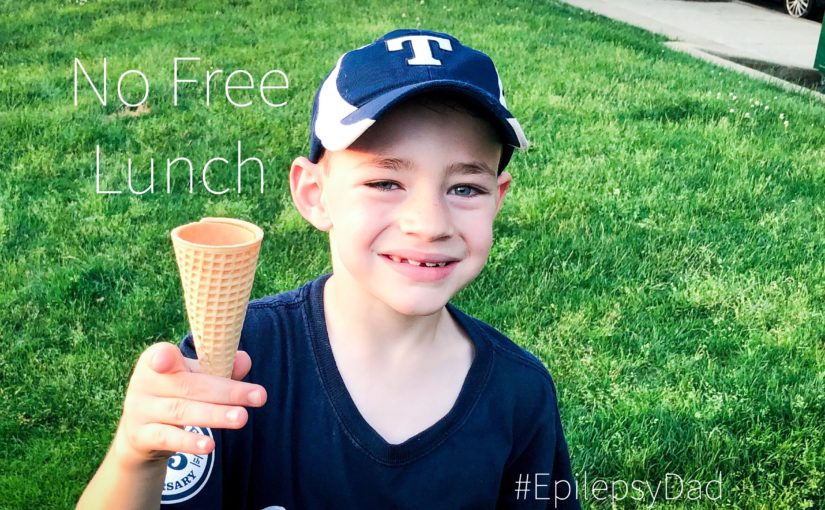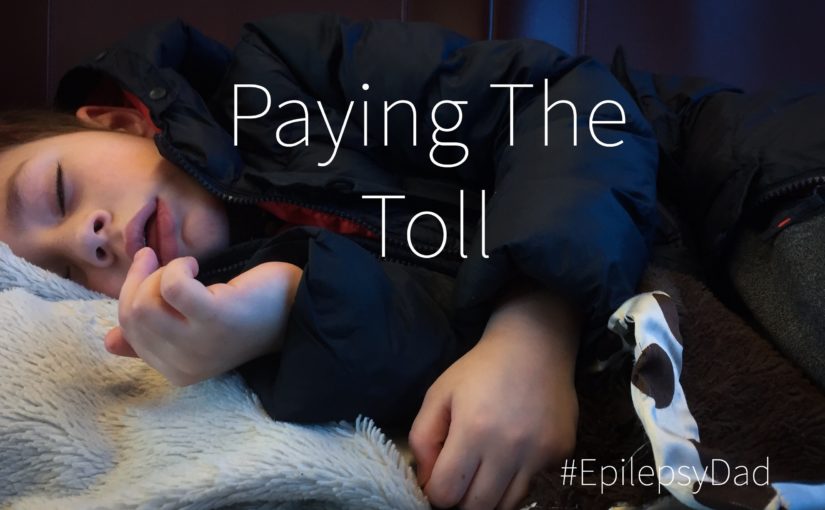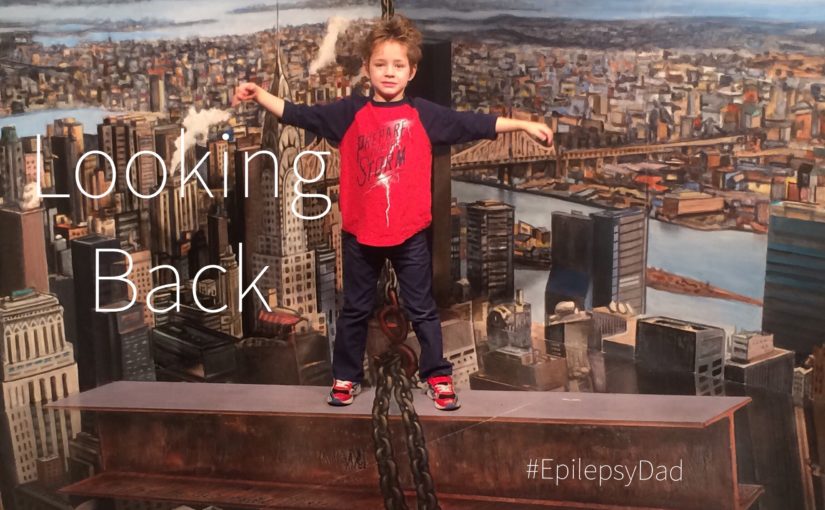Early one morning, I was sitting in the living room writing when I heard my son leave his room and go in to the bathroom. He was in there longer than usual and I could hear the muffled sound of banging. After a few more minutes, he came out of the bathroom and I asked what had happened. He explained that he was washing the bucket we had given him the night before when he told us he had an upset stomach. He had thrown up in the middle of the night.
This wasn’t the first time this had happened. My son has been on the ketogenic diet for more than two years. The “keto” diet is a high-fat diet used to treat hard to control epilepsy and it’s hard on his stomach. In addition to his seizure medication, the diet forces him to also take vitamin supplements and medicine for reflux, constipation, and acidosis. Constipation, diarrhea, cramping, and vomiting have been frequent visitors since my son was on the diet.
It’s not only hard on his body, it’s hard mentally, too. He can’t eat what we do or, if he does, he has to have a shot of oil or some other fat on the side. And he generally can’t have more of any one thing without adding more oil. He can’t have a slice of pizza. He can’t have a bowl of cereal or a bag of chips. When he’s at a birthday party, he can’t have a piece of cake or candy. We make modifications, like bringing along a “keto cupcake”, but it’s not the same. Because he is who he is, he endures with little complaint.
We make a handful of meals that he likes where the fat is hidden in the recipe. A soy flour and mayonnaise crust for pizza is one of his favorites. With that, there is fat in the crust and oil mixed in with the tomato sauce so he doesn’t need to have oil on the side. But we don’t have many of those meals, so we’ve been repeating the ones we do have for months.
To add dietary variety, the doctors want him to eat more “real” food. But for that we need a source of fat, which is generally a oil. And that’s what we did for dinner the night before that led to the bucket and the early morning cleanup.
We’ve lowered his ratio over the last year so that he needs less fat, but his diet is still more fat than not. I want to get him off the diet completely, but the doctors say it is working. It’s not enough to stop his seizures, but they think it’s helping his overall brain function and raising his seizure threshold higher than it would be off the diet. I’m less convinced, but I’m also the one that sees how hard the diet is for him every day. And there are certain rights of passage with food that I went through as a child. Eating an entire box of Lucky Charms. Folding a real piece of pizza in half and devouring it. Trying things at the farmer’s market. He’s missing out on all of it.
There is an acronym I remember from my economics classes that was also used in the Robert A. Heineken story The Moon Is A Harsh Mistress. TANSTAAFL, or “there ain’t no such thing as a free lunch,” is the idea that you can’t get something for nothing.
When we started the diet, we saw it as an alternative to more seizure medicine. It was supposed to be the prescription that helped his seizures without the side effects. It was supposed to give him a better quality of life. Maybe compared to another pharmaceutical, it did. But it didn’t come without its own downside.
Because everything comes at a price.


